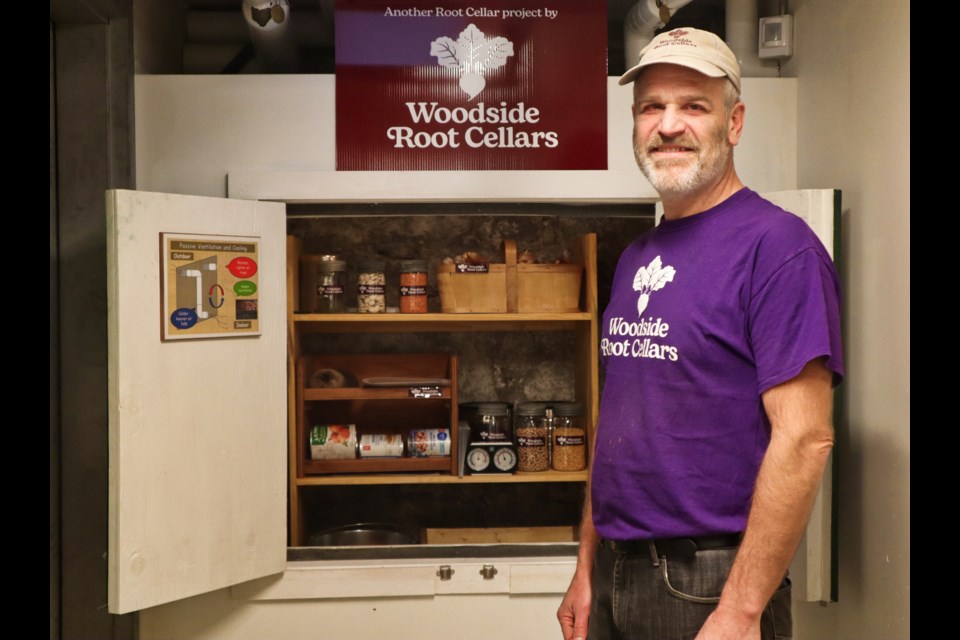The cold space underneath your home can be part of the solution to food insecurity, reducing food waste and helping build community resilience.
With that in mind, local organizations have been increasingly taking advantage of root cellars to help store food intended to help neighbourhood residents.
"We're definitely getting more momentum now, there's definitely more wind in our sails," said Ian Findlay of Woodside Root Cellars, a local business that helps residents retrofit cold storage rooms into functional root cellars. The business recently joined with Transition Guelph to create a root cellar for the Two Rivers Neighbourhood Group, supporting its mission to supply people with access to high quality and affordable food.
"We're very much actively seeking other neighbourhood organizations who would be interested in this service, but who also have the space to retrofit and make this happen, and that's the challenge, is finding the right space and organizations, to make this happen."
Started in December 2020 through Transition Guelph and a grant from Our Food Futures, Woodside Root Cellars has helped set up over 20 root cellars in Guelph and Wellington County.
Findlay said a lot of homes have already been designed with a cold room underneath the front porch in their original construction, including homes built 20 or 15 years ago. The process to retro-fit a root cellar takes about a day or two.
The result is a space which can sustain two to five degrees celsius over the winter, similar to the temperatures in your fridge.
"We just do a few tweaks to that space and you can get it working as a cold room," said Findlay, a contractor with about 20 years of experience in the construction industry.
"It's not a complicated piece, it's just simply making sure you've got good venting, good temperature control and you're getting the right humidity."
Findlay, who was chair of eMERGE for a number of years, said Transition Guelph noted sustainable food storage, like root cellars, as a 'missing link' in food security. Root cellars can also help combat food inflation costs by allowing people to purchase produce while its in season and store, along with reducing the amount of travelling to bring in food to a community and support local agriculture.
"If we can help folks store their food without the cost of plugging in a second refrigerator in, I think every little bit helps us achieve our goals for net zero (emissions)," said Findlay.
Besides implementation, another aspect of the business is education. Root cellars have been used for thousands of years, but Findlay said modern living and food delivery services have caused a disconnect with traditional practices. He hopes the business can help shine more light on the topic and have the community using more root cellars.
"This is a way to re-envision a space you're not necessarily using to its full potential right now, and creating some resiliency for families, as we go through uncertain times," said Findlay.
"We'd like to take that scary space in your basement and make it more pleasant."



